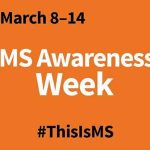
Know it, Manage It and Avoid It!
Can you tell the difference between fatigue, chronic fatigue and tiredness?
Can you differentiate between normal fatigue and MS related fatigue?
How many days in a week do you feel like lying down or that you are carrying a ton of weight on your shoulders or walking with clothes soaked in water? If you have Multiple Sclerosis (MS), your answer would be ‘every day!‘
Fatigue is one of the early and long-lasting symptoms of Multiple Sclerosis. The online medical encyclopedia WebMD reports that 80% of patients with Multiple Sclerosis have fatigue. The distinctive quality of MS-related fatigue is that it comes to not go away. It is essential for an MSer to know the symptoms of fatigue, how to manage it and what to avoid in order to prevent it from worsening.
Difference between Tiredness, Fatigue and Fatigue in MS
Tiredness is a routine body feeling. One may experience it after work and at the end of the day. A person would feel fresh after taking a bath or a nap. Fatigue is not the same.
Fatigue is not relieved by sleep. It lasts for a longer period of time, sometimes days or months. If it lasts for a month or less, doctors call it acute fatigue. In contrast to acute fatigue, chronic fatigue lasts for more than a month to six months or longer. In MS, a person experiences chronic fatigue all the time.
Here are some of the characteristics of MS related fatigue:
- Comes easily
- Gets worse as the day passes
- May occur even after a good night’s sleep
- Aggravates by humidity and heat
- Likely to interfere in a person’s ability to function well at home and at work
- May come with depression and gets worse as time passes
Symptoms of MS related Fatigue
There is a lot more involved in MS-related fatigue than just tiredness. A sufferer of Multiple Sclerosis should notice the symptoms mentioned below.
- Consistent tiredness even after sleep
- Sleepiness
- Stiff shoulders
- Nervousness
- Limbs and eyes feel heavy
- Lack of motivation
- Inability to concentrate
- Anxiety
- Impatience
What people say about MS-related fatigue!
People who have never experienced MS-related fatigue can never ever describe how it feels like. They may hold strong views that MS patients make excuses and don’t try hard enough, or don’t even want to take any action. They will give looks full of surprises to those who say, “It’s too hot today. Turn on the air conditioner. I will get tired!”
Tips to manage MS fatigue
There is only one option for patients with Multiple Sclerosis related fatigue, and that is to manage it. Some medications cause depression which is a factor responsible for causing fatigue. Consult your doctor if it does so. You have the following options to deal and manage MS fatigue.
- Daily exercises – Lack of movement makes muscles weak which then require more energy to move. A person should stay mentally, physically and socially active. Be sure to read the exercise tips we have shared for MS patients.
- Eat well – Try to cut down on caffeine, deep fried foods, red meat, fast food, and dairy products. Follow this MS friendly diet plan.
- Drink plenty of water – Don’t dehydrate yourself. Drink eight glasses of water every day.
- Keep your body and mind cool – Keeping the body cool means to avoid prolonged presence in heat, whereas keeping the mind cool means to stay relaxed and to avoid stress. Read how weather affects MS.
- Use your energy efficiently – Do not engage in activities which will tire you. Get help from others to conserve your energy levels.
- Deep breathing – Deep breathing exercises are very beneficial with MS.
- Meditation – Yoga and meditation help a lot to manage MS.
- Divert your attention away from fatigue – Get involved in activities like reading and knitting. Having a hobby or pets also works great.
- Stay away from energy drinks and soft dirks – These beverages contain high amounts of sugar and caffeine.
It is essential for an MS patient to manage fatigue to live a healthy and relaxed life. Poor management will only ruin your day and affect your quality of life.
Did we miss anything?
Tell us about your experience with MS-related fatigue in the comments below. What do you feel when you are tired and how do you manage MS related fatigue?







[…] disease. The patient must learn to manage both of these feelings. Stress is very likely to cause fatigue which will negatively affect the life of the […]
[…] around the world feel tired for reasons they don’t know. Numerous factors cause tiredness and fatigue with MS. Both conditions are synonymous, although there are slight differences between the two […]
[…] face symptoms the next day. Some Multiple Sclerosis symptoms are common in many patients, such as fatigue, pain, tingling and numbness, sexual dysfunction, bowel and bladder dysfunction, and mobility […]